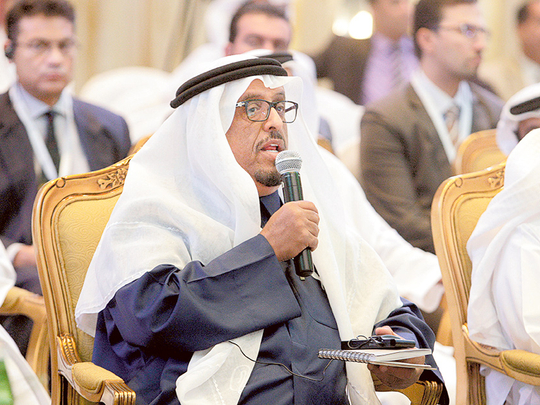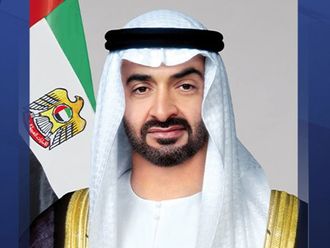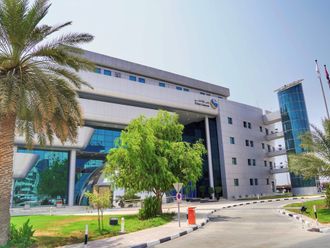
Abu Dhabi: To ensure its success, the international coalition against Daesh must fight all terrorist organisations whatever their orientations, a regional forum heard in Abu Dhabi on Wednesday.
“Almost all terrorist organisations in the world sprang from the Muslim Brotherhood and the coalition should fight all these organisations to ensure its success,” said Dr Tariq Fahmi, head of the political and strategic unit at the National Centre for Middle East Studies and professor of strategic thinking at Nasser Military Academy in Egypt.
Dr Fahmi, who is also professor of political science at the American University in Cairo, said in the face of the ascendant Islamist threat at home, and the apparent cross-national links between underground terrorist groups, Egypt has been calling for an international conference to combat terrorism since 1986, but nobody has ever paid heed to these calls.
“Egypt is fighting a war of existence and has reservations over the US-led coalition. Egypt has demanded that all terrorist organisations including the Muslim Brotherhood should be fought, and not just Daesh,” Dr Fahmi said.
General Peter Pace, former US Chairman of the Joint Chiefs of Staff, said we may see the threat (of terrorism) differently, but we are existentially threatened.
“There is no going back. My country with all good intents has made mistakes but it is willing to learn a lesson.”
Pace confirmed that no nation on the planet is so big that it can do everything alone and no nation is so small that it cannot contribute to fighting terrorism.
“Our enemy has a plan. Our enemy is not defeated, so sooner or later we will be attacked. Are we going to surrender or fight them?” he asked and immediately answered that we will defend our freedom.
‘Listening to each other’
General Pace agreed that 10 to 20 per cent of what the US does is not good for other parties and that 10 to 20 per cent of what it does even not good for the superpower itself.
“But this leaves between 60 to 80 per cent that is good for everybody. What we all need is listening to each other,” Pace said.
Mahash Saeed Al Hameli, director of the international security cooperation department at the UAE Foreign Ministry, said the US had made major mistakes.
“It marginalised a major part of the Middle East. The Palestinians are due to discuss their cause in the UN Security Council. Will they be allowed to do so without America using the veto. Will the US continue to punish the Palestinian people for more than 60 years?”
John Allen, the former top military commander, created extremism in Iraq, Al Hameli said, referring to talks held in August between US officials and the governors, tribal leaders and other Iraqi politicians in the city of Arbil to discuss recruiting and organising fighters in four Sunni-dominant provinces where Daesh has snatched territory.
“The occupation of Iraq was a mistake, will the US avoid occupying another country so that no more terrorists are created?” Al Hameli asked.
He added forging a coalition with Iran created a large number of Daesh fighters and so did the occupation of Afghanistan to eliminate Al Qaida and the Taliban. Now the US is engaging the Taliban in talks for a political solution there … How can we expect any good from the Taliban given the example of the Muslim Brotherhood in Egypt?
The forum discussed the unprecedented challenges of radicalisation facing the Arab world and the international community at large.
Experts argued the international coalition against terrorism should then solve the Syrian crisis and restore the Iraqi state; develop this war so as to face the roots of terrorism that sprang from the Muslim Brotherhood and other groups of political Islam; and go after other terrorist organisations in the region such as those in Libya, Mali and Yemen.
“The international coalition should vigorously counter the wave of terrorism that has taken hold in parts of the Arab world. This is particularly the case in countries that have been weakened by internal conflicts and instability, and have thus been the prey of choice for terrorist groups such as Daesh and Jabhat Al Nusra,” said Dr Ahmad Al Hameli, chairman of Trends Research and Advisory, the organisers of the forum.












